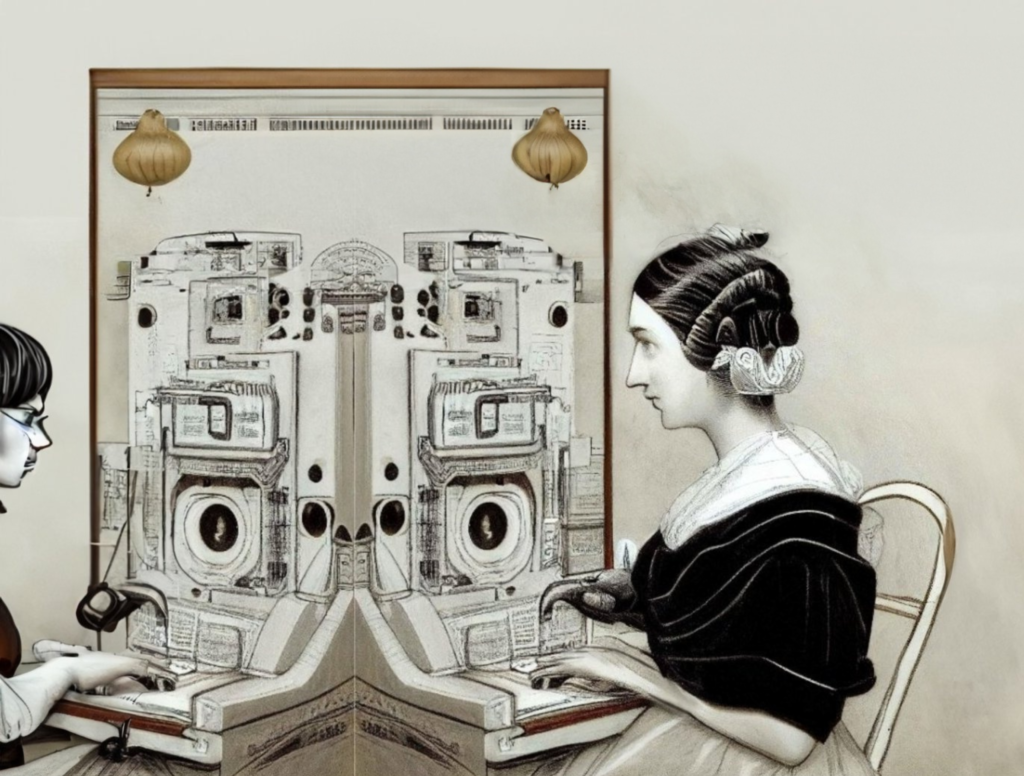The tech industry hasn’t exactly rolled out the red carpet for women for decades. They have faced countless systemic challenges, cultural stereotypes, and a persistent lack of representation. Yet, despite these hurdles, women have continually pushed through, becoming pioneers, leaders, and changemakers. So, what’s driving this change, and how do we keep it going? Let’s talk about the women reinventing the rules and what it takes to make tech a place where they thrive.
For years, the question wasn’t ‘Why aren’t there more women in tech?’ but ‘How do we fix it?’ The answers are slowly coming together: mentorship programs, companies making diversity a priority, and women themselves showing up and claiming space. The barriers are still there, but the progress? Definitely not undeniable.
Looking Back at the History of Modern Tech
If we go back to a time before the 19th century, life looked drastically different. Humans were the ultimate machines, solving problems and calculations without the conveniences we take for granted today— no inclusivity, no laptops, no coding bootcamps, no programming languages to automate tasks. Opportunities were limited—often granted to the few, and work was manual, and reliant on human ingenuity.
Then came Ada Lovelace, born in 1815 into a family of both privilege and constraint. The daughter of the poet Lord Byron, Ada’s mother was determined to steer her away from her father’s artistic leanings, instead nurturing her talents in mathematics and science from a young age.
This early guidance ignited Ada’s fascination with Charles Babbage Analytical Engine—a precursor to the modern computer. Often called the father of computer science, Babbage saw in Ada not just a collaborator but someone with the rare ability to envision possibilities far beyond the mechanical workings of his invention. Together, they developed what we now recognize as the first algorithm designed for a machine.

Today, Ada is celebrated as the first programmer in the history of computer science. She foresaw a future where machines could transcend mere number-crunching to unlock infinite possibilities. She dreamed of a world where technology would amplify human capabilities—a bold vision that continues to inspire developers to this day, as we look at how far we’ve come.
Ada Lovelace’s story reminds me of a timeless quote by Albert Einstein:
In the middle of every difficulty lies opportunity.
In an era where societal norms kept women far from the forefront of science and technology, Ada saw potential where others saw limits, and that limits in our modern days is not other than the imposter syndrome.
Modern Leaders Paving The Future
Now, let’s fast-forward to today. If you’ve ever searched an AI tool like ChatGPT, you’ve seen the impact of Mira Murati’s work firsthand. As the CTO of OpenAI, Mira has been at the forefront of developing some of the most transformative technologies of our time—tools that are changing how we communicate, learn, and innovate.
What’s is inspiring about Mira’s story is that she didn’t follow the conventional path we often associate with tech leaders. She didn’t graduate from an Ivy League university, but her curiosity and determination opened doors. Before joining OpenAI, she worked at Tesla, contributing to the development of the Model X, and her journey into AI was linear.
Mira’s leadership is about making sure that AI serves humanity responsibly. She’s been vocal about the need for ethical AI, raising critical questions about how these technologies impact society. Yet, as a woman in a high-ranking position, Mira likely knows what it’s like to be “the only one in the room.” Her journey shows not just the challenges of breaking into a male-dominated industry, but also the importance of showing up and claiming space where others might not expect you.
As a Black woman in tech myself, I know firsthand how isolating it can be to walk into spaces where no one looks like you. It’s not just about representation, it’s about how the absence of representation impacts your confidence, your sense of belonging, and even your belief in your own capabilities.
Kimberly Bryant felt this too. When she entered the tech world, she noticed the undeniable gap, especially for women of color. Growing up, many of us are told, directly or subtly, that certain spaces aren’t meant for us. Kimberly decided to change that narrative.
She founded Black Girls CODE, an organization that not only teaches coding but redefines who belongs in tech. Through mentorship programs, workshops, and a laser focus on empowering young girls of color, Kimberly built something far bigger than a curriculum.
She built a community that says:
You do belong here. You are capable of this.
Women in leadership, like Mira Murati and Kimberly Bryant, are leading by example. They’re at the forefront of tech, breaking barriers and paving the way for others to reclaim their confidence and step into spaces that once felt out of reach.
The Confidence Gap
And yet, for so many of us, even stepping into those spaces can feel overwhelming. Let’s talk about something we all experience but rarely admit: the confidence gap. How many times have you doubt yourself before making big decisions, speaking up in a meeting or applying for a role? I know I have.
There’s a study I often think about:
Men apply for jobs when they meet just 60% of the qualifications, but women often wait until they meet 100%.
Well it seems It’s not about capability—it’s about perception. Overcoming the confidence gap doesn’t happen overnight, but it all starts with awareness. If you’re a perfectionist, it can feel even harder, waiting for the perfect moment, the perfect plan, or fearing judgment. But people will always view you through their own experiences and lens regardless, and that’s beyond your control. So why hold back your dreams and needs for the sake of someone else’s opinion?
I remember sitting in a presentation long ago, watching a speaker who seemed flawless and completely at ease delivering speech. I couldn’t help but wonder, How is it possible to be this confident while speaking in front of an audience for an hour? Public speaking has never been easy process for me, so I assumed it must be a natural gift.
But then, as if reading my mind, she shared her story. She explained that she had been giving presentations for 14 years. If it had been her first or second time, though, she wouldn’t have been nearly this relaxed. In fact, she admitted to being painfully shy as a teenager. She reminded the audience that confidence isn’t a gift—it’s earned through persistence practice that built over time. It starts with taking that first scary step, then the next, and then another, until what once terrified you becomes second nature.
The Transformative Impact of Representation
Does your voice and representation matter? Absolutely. For young girls, seeing women thrive in areas they’re interested in is transformative. It sends a powerful message: If they can do it, so can I.
But challenges remain. Sometimes, they’re not apparent, but whether it’s doubts about technical skills or leadership capabilities, these biases linger. One of the best pieces of advice I’ve ever received is to respond with action. When someone questions your ability, don’t argue—let your work speak for itself.
The Role of Diversity in the Future of Tech
This is where representation comes into a bigger picture: diversity. What does the future hold for diversity in tech? Are companies truly embracing inclusivity? Over the past few years, many organizations have made strides toward greater inclusivity, equity, and even improving work-life balance. While there’s still work to be done, the opportunities ahead are promising.
Research consistently shows that companies with diverse leadership teams perform better. Why? Because diversity fosters innovation. When people with different perspectives come together to solve problems, the solutions are more creative, effective, and impactful.
Inclusivity goes beyond innovation. It broadens the lens through which we design solutions, ensuring the technology we create is accessible, equitable, and representative of the diverse world we live in.
So, What’s Your Next Step?
Maybe it’s taking that first scary step, learning to code, reaching out to a mentor, or even just believing in yourself a little more. The world of tech is waiting for your voice, your ideas, and your perspective. Take the leap—you’ve got this.





